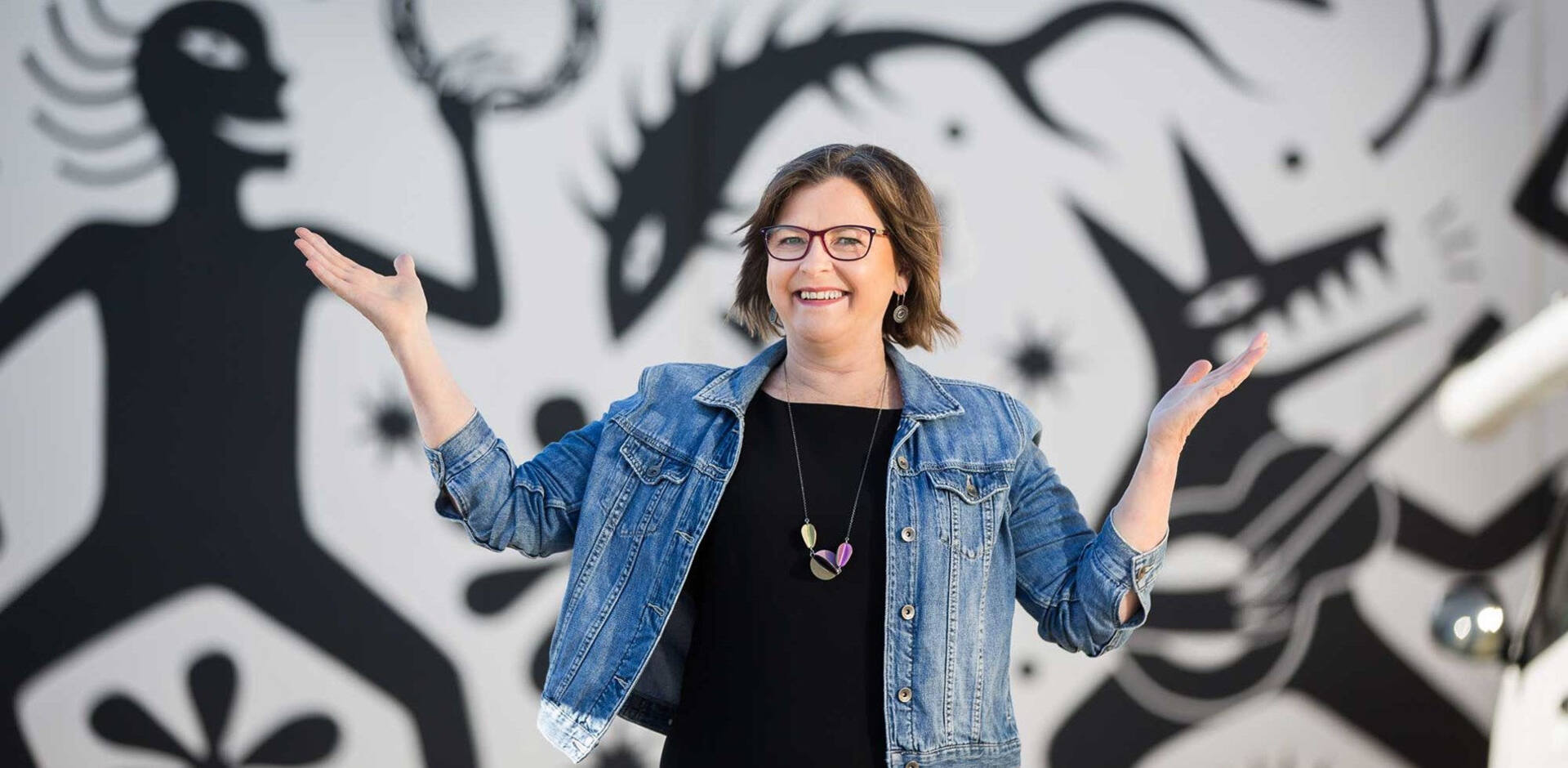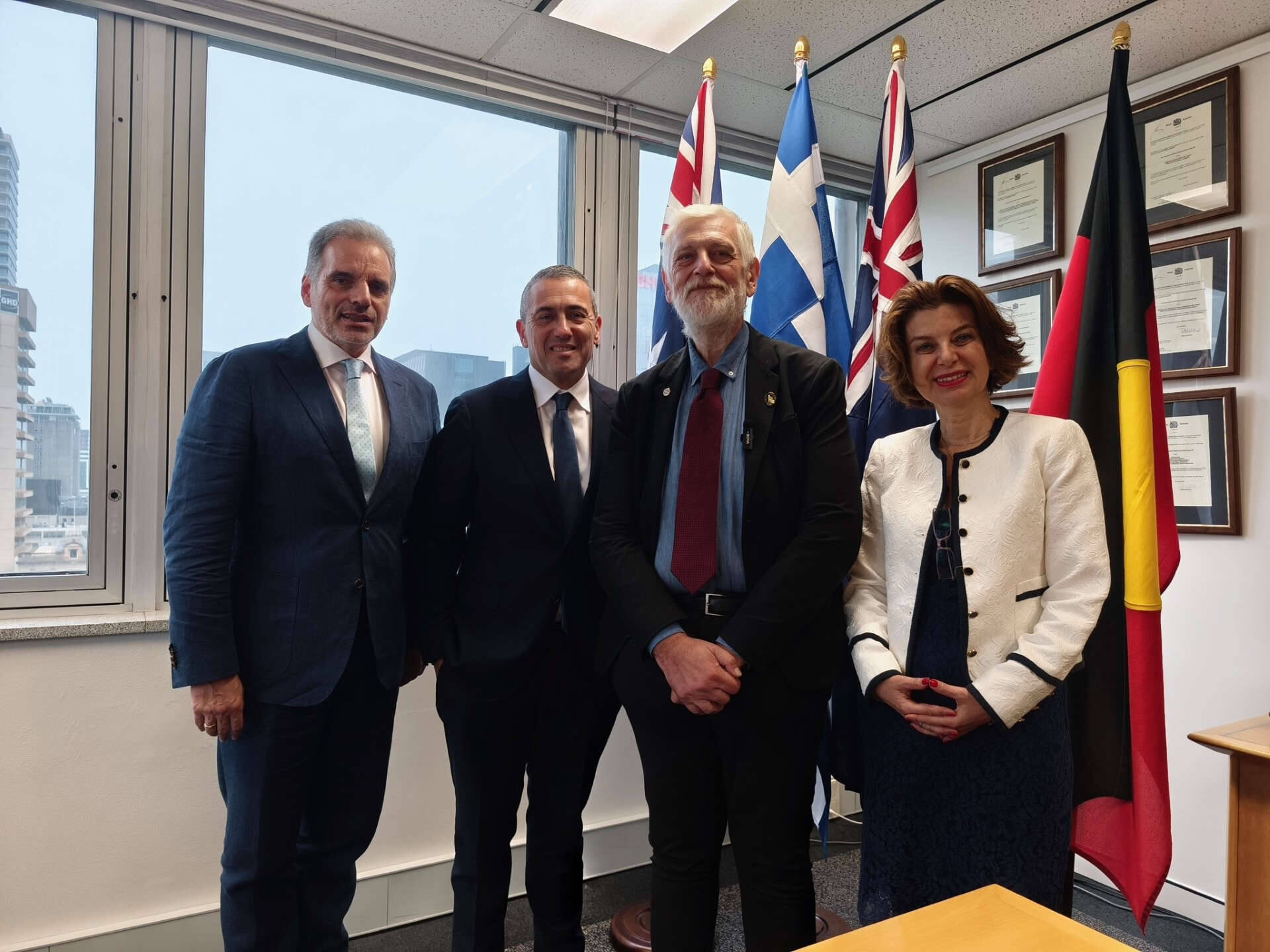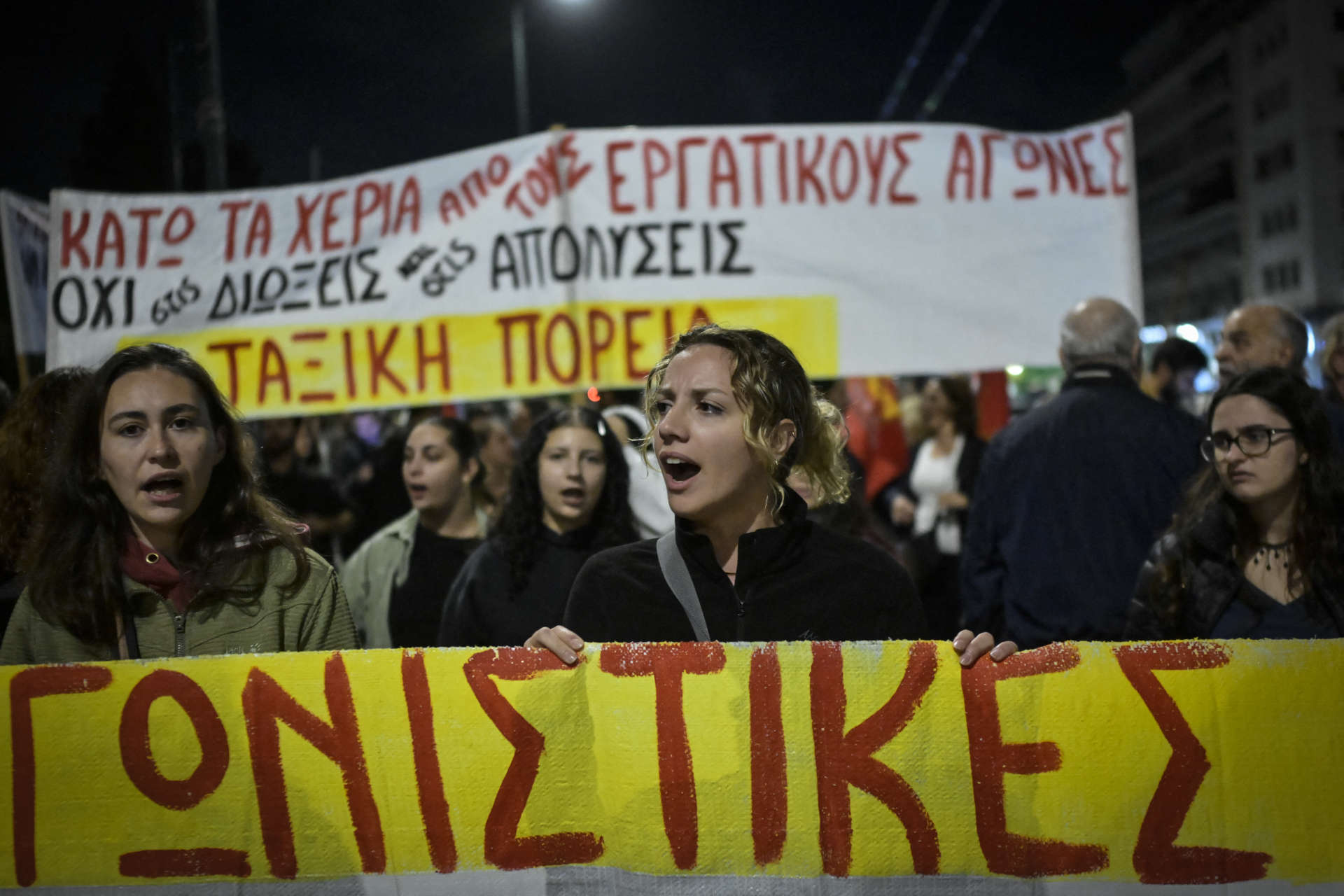From Greek toga celebrations to tough conversations: Ged Kearney on ending family violence
Source: NEOS KOSMOS
At the launch of the Philhellenika Festival in Fairfield last week Ged Kearney the Member of Cooper, which takes in much of Melbourne’s north, found herself surrounded by Greek music, food, and a few unexpected togas. The festival’s director donned the toga for the event.
“It was wonderful!” she laughs. “I think next time everyone should wear one — a toga dress code for all!”
Kearney, a former nurse and union leader, began her career in healthcare after training as a registered nurse in the 1980s. Rising through the ranks of the Australian Nursing Federation, she went on to serve as its federal secretary in 2008 and entered parliament in 2018 and was soon given portfolios of Assistant Minister for Health and Aged Care and Assistant Minister for Indigenous Health.
Kearney has now been elevated to Assistant Minister for Social Services and for the Prevention of Family Violence.
Community, connection, and culture
“In Cooper, Greek is the most spoken language after English,” Kearney says. “From St John’s School to the Cathedral on the hill — Greek culture runs right through the electorate. Festivals like these bring people together. They are essential to cohesion and wellbeing.”
Her electorate’s diversity, she adds, is one of its greatest strengths. Yet it also means that community awareness is vital when addressing issues that can remain hidden behind closed doors. Kearney, a former nurse, and nurses’ union leader is laser focused on how communities – especially diverse ones – can partner with services and authorities, to tackle the nation’s growing crisis of family and domestic violence — and the often-hidden abuse faced by elders.
The research showed a strong social support and affectionate father–son relationships significantly reduced the likelihood of men using violence.
Elder abuse: a crisis
Greek elder abuse is one of our community’s dark areas and one that needs to be dealt with. Kearney notes that elder abuse, across communities —financial, emotional, or coercive — is on the rise.
“We’ve even heard of people being pushed out of their homes and becoming homeless,” she says. “It’s an area that needs more focus. We must ensure people can access help — ideally in their own language and through trusted community organisations.”
For the minister prevention starts locally. “Community support and vigilance matter. Knowing your neighbours, looking out for each other, and speaking up when something seems wrong — that’s where prevention begins.”

The national challenge of family violence
As Assistant Minister, Kearney helps oversee Australia’s national response to family and domestic violence — an area where progress remains painfully slow.
“Awareness and reporting have increased,” she acknowledges, “but unfortunately, so have incidents. Police now tell us that family and domestic violence makes up a major part of their workload. Victoria Police, for example, has a dedicated unit and response process, which shows how pervasive the issue is.”
The statistics are sobering more than one in three Australian men aged 18–65 have used intimate partner violence (IPV), according to new data from Ten to Men, the Australian Institute of Family Studies’ (AIFS) landmark study of boys and men.
The findings revealed that about 120,000 men each year begin using violence for the first time. When the study began in 2013–14, one in four men reported using IPV; by 2022, that figure had risen to one in three.
Emotional abuse was the most common form, with 32 per cent admitting they had made a partner feel “frightened or anxious,” and 9 per cent reporting they had physically hurt a partner when angry.
Yet, Kearney stresses, it’s not just a law enforcement matter. “Schools, hospitals, GPs — even hairdressers — can be points where people disclose abuse. We need to make sure that when domestic violence is revealed, wherever that happens, people know how to respond appropriately.”

Ending violence in a generation
The federal government’s National Plan to End Family and Domestic Violence in a Generation centres on prevention and early intervention. An ambitious objective, reminiscent of former Labor Prime Minister Bob Hawke’s promise to end child poverty by 1990. Kearney is aware of the enormity of the promise.
“We ask ourselves: can we stop it? I believe we can — if we raise healthy young men, talk about respect in schools, and challenge harmful influences,” Kearney says.
Children, she explains, are often exposed to violence both at home and online. “That exposure shapes attitudes,” she says.
“Not everyone exposed to violence becomes violent, but we know some children who experience family violence grow up to be perpetrators or victims themselves. So, we must act early — manage the crisis, ensure safety, and support healing and recovery.”
She says the social media ban on under-16s just introduced may go some way in helping alleviate domestic and family violence. Equally she acknowledges that the seeing violence on screens, or engaging with nefarious social media content does not necessarily create violent perpetrators, but it does help.
Kearny is very keen to emphasise “early intervention”, which she says “requires skill and sensitivity”.
“Schools might notice something, children might disclose what’s happening at home, family members might observe something. But identifying it within the family home is often the hardest part.”

Culture, community, and change
The minister recognises that cultural attitudes can shape how domestic violence is understood — and that community leadership is key to change. The priest, the imam, the uncle and aunty, the elder, all play a role in ending family violence she says.
“That’s where community leaders and key people come in,” she says.
“We must work with elders, religious and cultural leaders, and local and national ethnic and service organisations, as well as ethnic media. We need to have community-led conversations — where people say, ‘This is not okay.’ That’s the most powerful change agent.”
Real transformation, she insists, must come from within. “You and I can talk about this all day, but when someone from the community stands up and says, ‘We don’t accept this,’ that’s when we see real change.”
Masculinity, prevention, and modern pressures
Generational attitudes toward gender roles and respect are shifting, but Kearney says the work must continue.
“Having traditional values doesn’t mean being violent. It’s about modelling respect,” she explains.
The minister agrees that tradition, faith, and culture, while often can be patriarchal is also deeply matriarchal. Moreover, there is no evidence that domestic violence is sanctioned by any of the faiths, regardless of what family values they adhere to or promote.
“We need to help dads be good dads. Research shows boys who have strong relationships with their fathers are almost 50 per cent less likely to use violence.”
The breakdown of older social structures — unions, Greek cafes, clubs, and local groups — may have left many men without that sense of belonging and furthermore, accountability.
“Those institutions gave men a sense of responsibility. Some still exist — sports clubs, for example — and we should use them to rebuild community connection. Because yes, today there’s more alienation, economic pressure, and competition. People are stretched thin.”
Prevention over crisis
The federal government she says, currently spends around $4.5 billion on family and domestic violence services, most of it on crisis response — housing, legal aid, and emergency support.
“It’s never enough,” Kearney says. “Minister Tanya Plibersek and I are reviewing how those services are funded to make them more effective. But prevention and early intervention need more investment. It’s cheaper and far more effective to build the fence at the top of the cliff than to keep sending ambulances to the bottom.”
Looking ahead
Through the National Cabinet, all states and territories have agreed that ending domestic violence is a national priority. For Kearney, that collaboration offers hope.
“My wish is that all levels of government — from the Attorney-General to Education and Health — work together, because this is a whole-of-government issue,” she says. “We need to care for women in crisis, support recovery, and most importantly, raise healthy, respectful humans.”
From the toga-wearing launch of a Fairfield’s Philhellenika Festival to the sobering challenge of ending family violence, Ged Kearney’s message is clear: change starts with family and community — and with the bravery to talk about what was once left unspoken.
The original article: belongs to NEOS KOSMOS .





